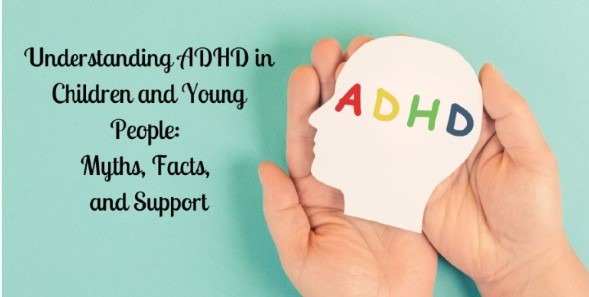ADHD Myths and Facts

Attention-Deficit Hyperactivity Disorder (ADHD) is a common neurodevelopmental condition affecting many children and young people in the world. It can present challenges, including difficulties with attention, hyperactivity, and impulsivity. However, there are numerous myths surrounding ADHD that can create misunderstandings. As an NLP practitioner and licenced NLP4Kids practitioner (in Telford) working with both neurodiverse and neurotypical children, I aim to clarify these myths and provide support for those affected.
Common Myths About ADHD
Myth: ADHD Isn’t a Real Medical Condition
Fact: ADHD is a recognised neurodevelopmental disorder with a biological basis. It affects how the brain functions, particularly in areas related to attention and impulse control.
Myth: All Kids with ADHD Are Hyperactive
Fact: While hyperactivity is a common symptom, not all children with ADHD display this behaviour. Some may primarily struggle with inattention.
Myth: Children Will Outgrow ADHD
Fact: Many children with ADHD continue to experience symptoms into adolescence and adulthood. Early intervention can help manage these challenges effectively.
Myth: ADHD Is Caused by Poor Parenting
Fact: ADHD is not caused by parenting styles. It is influenced by a combination of genetic, environmental, and neurological factors.
Myth: Kids with ADHD Can’t Focus at All
Fact: Children with ADHD can focus intensely on activities they enjoy, often referred to as “hyperfocus.” The challenge lies in maintaining attention on less stimulating tasks.
Co-Existing Disorders
Many children with ADHD also experience co-existing disorders, such as anxiety, depression, or learning disabilities. Anxiety, in particular, is common and can exacerbate ADHD symptoms, making it crucial to address both conditions for effective support. By understanding these co-occurring issues can lead to more tailored and effective interventions for children and young people.
The Role of Executive Functioning
Executive functioning is another critical aspect of ADHD. It refers to the mental skills needed for planning, organisation, and impulse control. Children with ADHD may struggle with these skills, which can affect their ability to manage tasks effectively. Supporting their executive functioning can significantly improve their daily lives and academic performance.
Support Strategies
As an NLP practitioner based in Telford, Shropshire, I focus on providing personalised support for neurodiverse and neurotypical children. Each session is tailored to meet the individual needs of the child, addressing challenges such as anxiety, anger, OCD, fears, and phobias. By creating a safe and nurturing environment, I help children develop coping strategies and improve their overall well-being.
Promoting Awareness and Understanding
During ADHD Awareness Month, it’s vital to share accurate information to combat myths and promote understanding. By educating ourselves and others about ADHD and its associated challenges, we can create a more supportive community for children and young people..
ADHD is a complex condition that affects many children and young people. By recognising the myths, understanding co-existing disorders like anxiety, and providing tailored support, we can empower those with ADHD to thrive.
If you’re looking for help or resources in Telford, Shropshire or UK-wide (online sessions are also available) please don’t hesitate to reach out.
If you would like to find out more on how I help children, teens and young people understand their thoughts, behaviours and emotions.
https://nlp4kids.org/practitioners/louisa-gauld-crichton/
Leave a comment
This site uses Akismet to reduce spam. Learn how your comment data is processed.



Leave a Reply